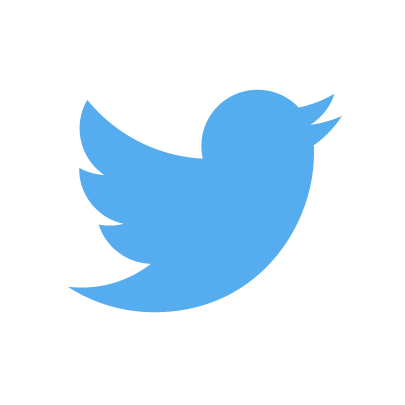 How do you define ‘onlyness’?
How do you define ‘onlyness’?
The word actually doesn’t appear in the English dictionary, but I would argue that it should. Simply put, it means that anyone’s — and quite possibly everyone’s — ideas matter. The genesis of the word starts with the fact that You are standing in a spot in the world that only You stand in. It is a function of your history and experience, and from this spot where only You stand, You offer a distinct point of view, unique insights — and even groundbreaking ideas. The second aspect of onlyness is that today, thanks to network connectedness, we can scale and realize our ideas, bypassing the people and systems that traditionally filtered them out. As a result, every one of us has the power to unlock the innovation that the world needs so badly right now.
Regardless of their status, some people are able to seize this opportunity and make an impact, while others can’t. Why is that?
That is one of the biggest questions I had going into this project, because I honestly didn’t know. When I looked at the last 20 years of thinking across the management spectrum, I heard things like, ‘to succeed, you need to have grit’, or ‘you need to believe in your ideas and be persistent’. The management literature basically suggests that the extent of your personal power is up to you. So, if you’re not being heard, that’s on you too.
These approaches ignore something important: If we don’t ‘belong’ to the group of people with whom we are sharing our ideas, those ideas are likely to be rejected. In many cases, the precondition for having ideas that ‘make a dent’ is belonging. That requires knowing how to connect to a community of people who ‘get you’ and who can help you make progress.
You believe the word ‘value’ is both an economic term and a human one. How so?
Most of the time, our business models and economic models look for ways to filter people out rather than funnel them in. We look at people and conclude whether or not they are talented based on how credentialed they are, or what brands they have worked on, or how many years of experience they have — instead of looking at the innate capacity that each person possesses.
Each one of us has the power to unlock the innovation that the world needs so badly right now.
The story of Foldit was profoundly interesting for me. The scientific problem of ‘how proteins fold’ had existed for 50 years. Misfolded proteins cause terrible diseases such as Alzheimer’s and ALS, so understanding how this happens is critical. A group of researchers at the University of Washington set out to crowdsource the answer by creating an online game called Foldit. The team envisioned that PhD students from around the world would lend their expertise, so the early game was designed for just such players.
However, the initial group couldn’t solve the problem, and the researchers realized that they had made a mistake by targeting a narrow pool of talent — all of whom had been trained in the same way. They realized there wasn’t much room for creativity or ‘fresh takes’ to solve this vexing problem. So, they revamped the game using less academic jargon and opened it up to include graduate students from other disciplines.
Again, they had no luck, and they realized the game’s reward system contained several biases that caused players to pay attention to social status signals. So, players’ schools, gender and age were factored out to enable players to focus on the ideas being generated. Finally, someone cracked the case. But the person who turned out to be the ‘best protein folder’ in the world wasn’t a credentialed expert or a research student at a top university, as most people would expect: It was an individual who lacked authority, personal influence and organizational heft. From the perspective of onlyness, the winner made perfect sense: The best protein folder in the world turned out to be Susanne Halitzgy, an executive secretary at a rehab clinic in Manchester, England, who loved playing Sudoku puzzles in the evening. She had studied Medicine early in her career but dropped out, in part due to the sexism she encountered. Yet she clearly still had the capacity to contribute to the field.
In the end, by enabling a new set of conditions that made individual capacity count — and opening up the project to a larger and more varied set of players — Foldit made it possible for new value to be created for society. To me, this story contains a critical lesson for all of us: Instead of assuming that we know what we’re looking for, maybe we should actually design our systems, structures and processes so that anyone — and quite possibly, everyone — can contribute that which only they have to give.
Why is now such a great time to bring our unique gifts to something we care about?
The Economist recently ran an article indicating that collectively, we have run out of ideas, and that nothing matters more today for our economy — and our lives — than coming up with ideas that lead to innovation. This could help us cure diseases, as in the example of Foldit, or extend our lifespans; it could allow us to increase the pace of transportation or communication; it could even allow us to create higher-wage work. There has never been a time where our democracy and our entire society is literally at risk because people are not able to contribute and improve the economy. This is a mission-critical time where we have to let more people participate in the economy and find new ways of doing things.
You could actually be considered a poster woman for onlyness. Can you share some of your story?
The book starts out with my personal story. That wasn’t my idea — it came from a colleague who I trust implicitly, who felt it needed to be in there. When I was 18, I was supposed to be part of an arranged marriage. One day I came home to a house full of aunties and uncles who told me, ‘Your life as you know it is now going to be set out in this particular direction’. I had grown up accepting these ideas, but because I had been in the U.S. since I was four and a half, I had one foot firmly in each camp: The Western culture that I lived in every day and the traditional Islamic culture that I returned to every night. In my family’s view, my ‘job’ in the family was to marry well and make sure that my mother was well provided for. I accepted this, but I asked if they could please allow me to get an education first. They refused and were not willing to negotiate.
At that moment, I realized that my family was only seeing me as a silhouette of a person. Their focus was on ‘the Islamic woman’s job’ — not on Nilofer, The Human Being. I explained to my mother that because I was the ‘product’ in this ‘deal’, she couldn’t make the deal without me. I thought I had some leverage; but it turned out, I didn’t. She refused to change her mind, and I would not change mine. I ended up walking out of the house that day — and 30 years later, I have yet to really be accepted back into my family. This experience showed me — in high definition — that when you only look at the silhouette of a person, you missout on a lot.
This is a mission-critical time where we have to let more people participate in the economy and find new ways of doing things.
During college, I went to work at Apple as an administrative assistant. One of the first meetings I was invited to was a brainstorming session. I remember reading up on the topic and coming to the meeting with lots of ideas and questions. It took a minute or two to realize that no one was making eye contact with me. Even though I was invited to the meeting, it was clear they were looking to a few key people in the room to have ideas.
In future meetings I realized that people only paid attention to either the CEO or senior executives — not to any of the lower-ranked people. I realized, ‘Oh my gosh, this company is missing out on so many perspectives by not noticing the capacity inherent in each person’. That’s how I came to coin this term and started to advocate for a more inclusive form of innovation.
If someone wants to make a real ‘dent’ on a particular issue, do they have to quit their day job?
Definitely not. The best part about doing all this research is the 300 stories that I ended up researching in order to find the 20 featured in the book. A vast majority of these people are creating change one hour a day, or five hours a week. It’s not about time, it’s about figuring out what matters to you, and then knowing how to find other people with whom you can start to make a difference.
Just look at a social movement like #MeToo. The issue of harassment has been prevalent for a very long time, yet people working inside organizations have not been able to affect change. With this grassroots campaign, all of those bits and pieces have added up in the larger society and they are now starting to really make a dent.
The question is, ‘What do you care about that you could maybe devote an hour per week to, and find other people who are working on the same thing?’ It’s really about what you believe needs to happen in the world.
Can it really be true that all 7.5 billion+ of us have a shot with our ideas?
When I wrote that sentence — which appears in the last section of the book — someone challenged it. I remember this vividly, because it was somebody I really respect, and they said to me, ‘That is the most audacious idea I’ve ever heard’. I remember thinking, ‘You’re right; it is audacious’. I decided to edit it out of the book. But then, after a night or two had passed, I literally crept down the stairs of my own home as if I was sneaking up to the manuscript and I put the sentence back in.
I’m not saying that everyone will have a shot with their idea, but I am saying that anyone can. It took some courage on my part to reclaim that concept for myself and say, ‘This is why I believe this onlyness construct is so needed’.
When you exclude people of colour, young people and women, something like 65 per cent of the population is not invited to the innovation table. We need a new framework that shifts business back to what it can do, which is create value. And when you include more people, you have a much better chance of achieving that.
Nilofer Merchant is the author of
The Power of Onlyness: Make Your Wild Ideas Mighty Enough to Dent the World (Viking, 2017) and a Fellow of the Martin Prosperity Institute at the Rotman School of Management. She has held executive positions at Apple, Autodesk and GoLive Systems, has been awarded the Thinkers50 Future Thinker Award and was named ‘The #1 Person Most Likely to Influence the Future of Management in Both Theory and Practice’ by the UK-based Thinkers50.
This article appeared in the Spring 2018 issue. Published by the University of Toronto’s Rotman School of Management, Rotman Management explores themes of interest to leaders, innovators and entrepreneurs.
Share this article: